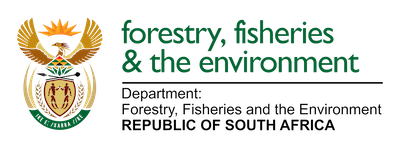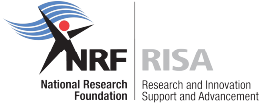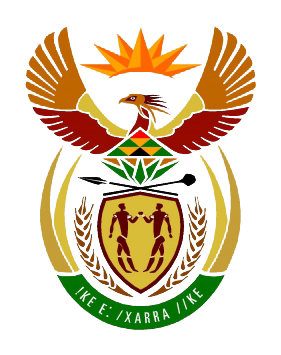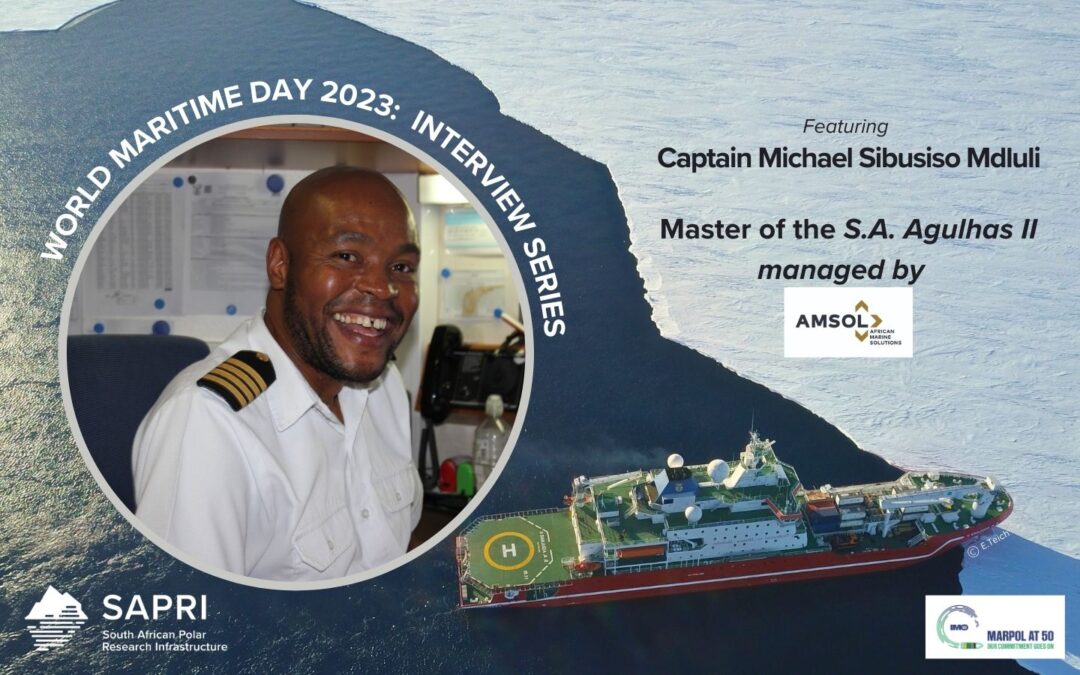
by Rabia Mathakutha | Sep 20, 2023 | Antarctica, Commemorative Days, Environment, International Days, SA Agulhas II, SA Polar Infratsructure, SA Polar Research Infrastructure, SANAP, SAPolarRI, SAPRI, Uncategorised
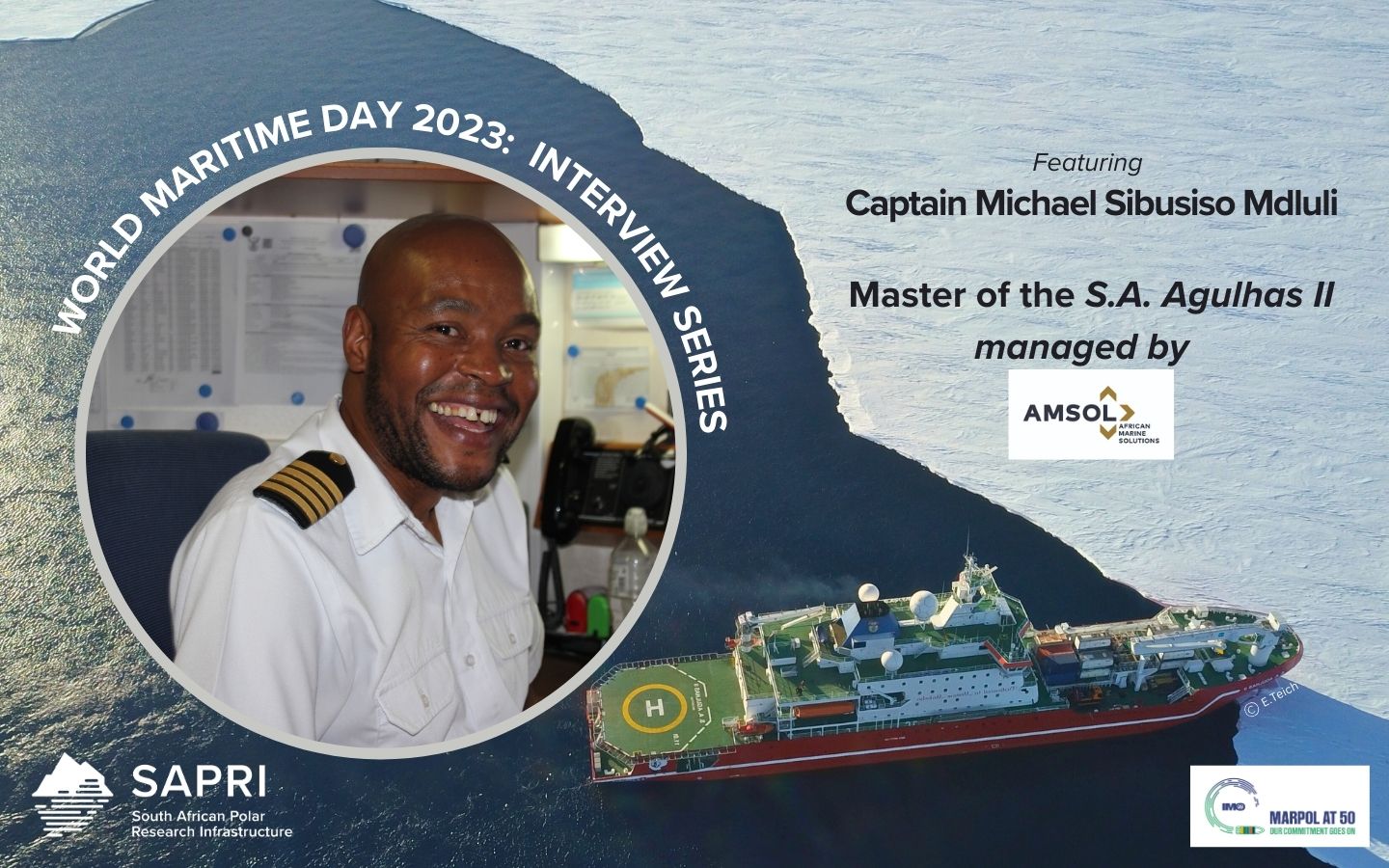
Leading up to World Maritime Day 2023
Every year on the last Thursday of September, nations around the world come together to celebrate World Maritime Day. This international observance aims to highlight the crucial role that shipping and seafaring play in our global economy and emphasise the importance of sustainable maritime practices. World Maritime Day provides an opportunity to raise awareness about the challenges faced by the maritime industry and to promote international cooperation in addressing them.
According to the International Maritime Organisation (IMO), This year’s World Maritime theme is “MARPOL at 50 – Our commitment goes on”. The theme spotlights the International Convention for the Prevention of Pollution from Ships (MARPOL), which covers the prevention of pollution of the marine environment by ships from operational or accidental causes.
Acknowledging the Role of South African Seafarers in the Maritime Industry
The maritime industry is the backbone of global trade. This industry connects countries, facilitates economic growth, enables scientific and research expeditions and plays a vital role in our everyday lives. However, the success of this enormous industry would not be possible without the men and women who sacrifice their time on land to serve our maritime needs. In recognising this, the South African National Antarctic Programme (SANAP) and the South African Polar Research Infrastructure (SAPRI), would like to honour some of our local seafarers working on board the South African research and supply vessel, the S.A. Agulhas II during various marine and Antarctic research related expeditions through the Southern, Indian and Atlantic Oceans. We would like to honour these seafarers in The Maritime Interview Series, leading up to World Maritime Day, on Thursday, 28 September 2023.
The Maritime Interview Series Part 1 features Captain Michael Sibusiso Mdluli, Master of the S.A. Agulhas II.
What is the Captain’s role on the ship?
“As the captain (also known as the Master), I hold the highest-ranking position on the vessel and I’m responsible for various critical tasks. I oversee the navigation, operations and safety of the S.A. Agulhas II, including managing and leading the crew. I have to ensure compliance with regulations and laws, oversee the vessel maintenance and administration, and handle commercial and legal responsibilities. My primary focus is thus on maintaining the safety, efficiency, and overall well-being of the vessel, crew, and cargo throughout its operations”.
Captain Mdluli’s Background and Journey into a Seafarer Career
Captain Mdluli grew up in a small village of Kwathunyana, which is 50 km south of Durban, and currently resides in Kloof, Durban. From humble beginnings as a Third Officer to obtaining the internationally recognised Master’s Certificate of Competency (Unlimited) in 2012, Captain Mdluli has been a seafarer for over 20 years. He has worked as a Master on several cargo vessels before joining the S.A. Agulhas II in 2016, and maintains that his experience on a research vessel such as the S.A. Agulhas II is both challenging and enjoyable. Some of the new and exciting experiences he mentioned about commanding the S.A. Agulhas II were learning how to navigate sea ice, a critical role during SANAE IV expeditions to Antarctica, as well as working with and learning from the scientists and researchers aboard the S.A. Agulhas II during research expeditions.
Captain Mdluli holds a Master’s Certificate of Competency (Unlimited), which makes him qualified to command a vessel of any size in the world’s oceans.
What do you like the most about your job?
“I enjoy travelling, seeing new places, meeting and interacting with different people, and learning from others. I also enjoy sharing my knowledge with others and empowering and inspiring the youth of South Africa”. To this, Captain Mdluli spoke about his involvement in school outreach programmes, where he visits local high schools in KwaZulu-Natal to share his knowledge and experiences as a seafarer.
What are some of the challenges that you experience in your line of work?
“Being away from loved ones and sometimes the long working hours that come with being a captain and overseeing everything and everyone”. He mentioned that he often has to be the last man standing. Captain Mdluli expressed that as much as he enjoys working with people and sees the crew as part of his family and always strives to get to know his crew on a personal level, this also comes with the challenge of dealing with individual personal matters that he is not always equipped to. However, he mentioned that the vessel managing agent, African Marine Solutions (AMSOL), offers counselling for their staff, which helps provide support during long voyages at sea.
Away from home: See the S.A. Agulhas II voyage schedule here.
Advice from Captain Mdluli:
“The best advice I would give to anyone interested in pursuing a career in maritime or wants to become a ship captain one day, is to choose STEM subjects at school (i.e., Science, Technology, Engineering, and Mathematics). Furthermore, to work at sea, you must have a positive mindset and show resilience, and most importantly, you must have a passion for it. Therefore, when looking to pursue any career, talk to the people who’ve been there or doing something related, to find out if it’s right for you”.
World Maritime Day reminds us of the vital role that the maritime industry plays in our interconnected world. The maritime industry is also particularly crucial in enabling the science and research in the Antarctic region and Southern Ocean through SANAP. SANAP recognises the global and national importance of safeguarding the environment of the Antarctic and Southern Ocean and protecting the integrity of ecosystems, both marine and terrestrial, in the region.
As we navigate towards a more sustainable future, let us recognise the invaluable efforts of seafarers who continue to navigate the world’s oceans, connecting nations, and powering global trade, science and research.
Photo Credit: Rabia Mathakutha (South African Polar Research Infrastructure) and Eduan Teich via the Antarctic Legacy of South Africa (ALSA) Archive.
Written by: Rabia Mathakutha, South African Polar Research Infrastructure, 20 September 2023
Edited by: Anche Louw, South African Polar Research Infrastructure and Ria Olivier, Antarctic Legacy of South Africa
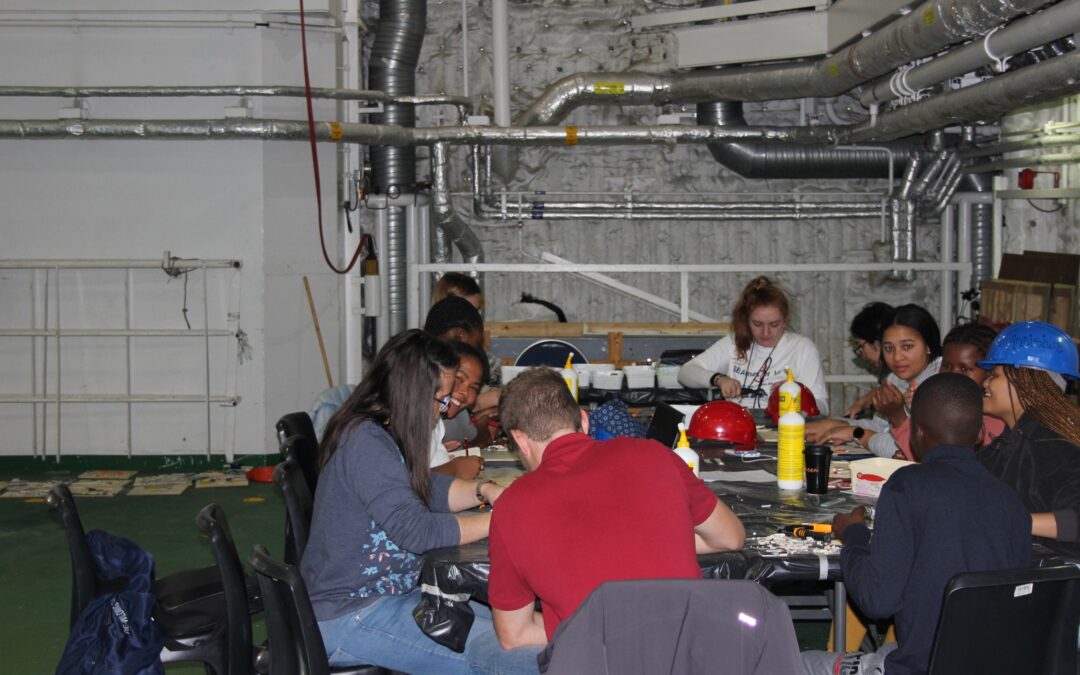
by Rabia Mathakutha | Jul 26, 2023 | Environment, Oceanography, Research, SA Agulhas II, SA Polar Infratsructure, SA Polar Research Infrastructure, SANAP, SAPolarRI, SAPRI, Science, SEAmester
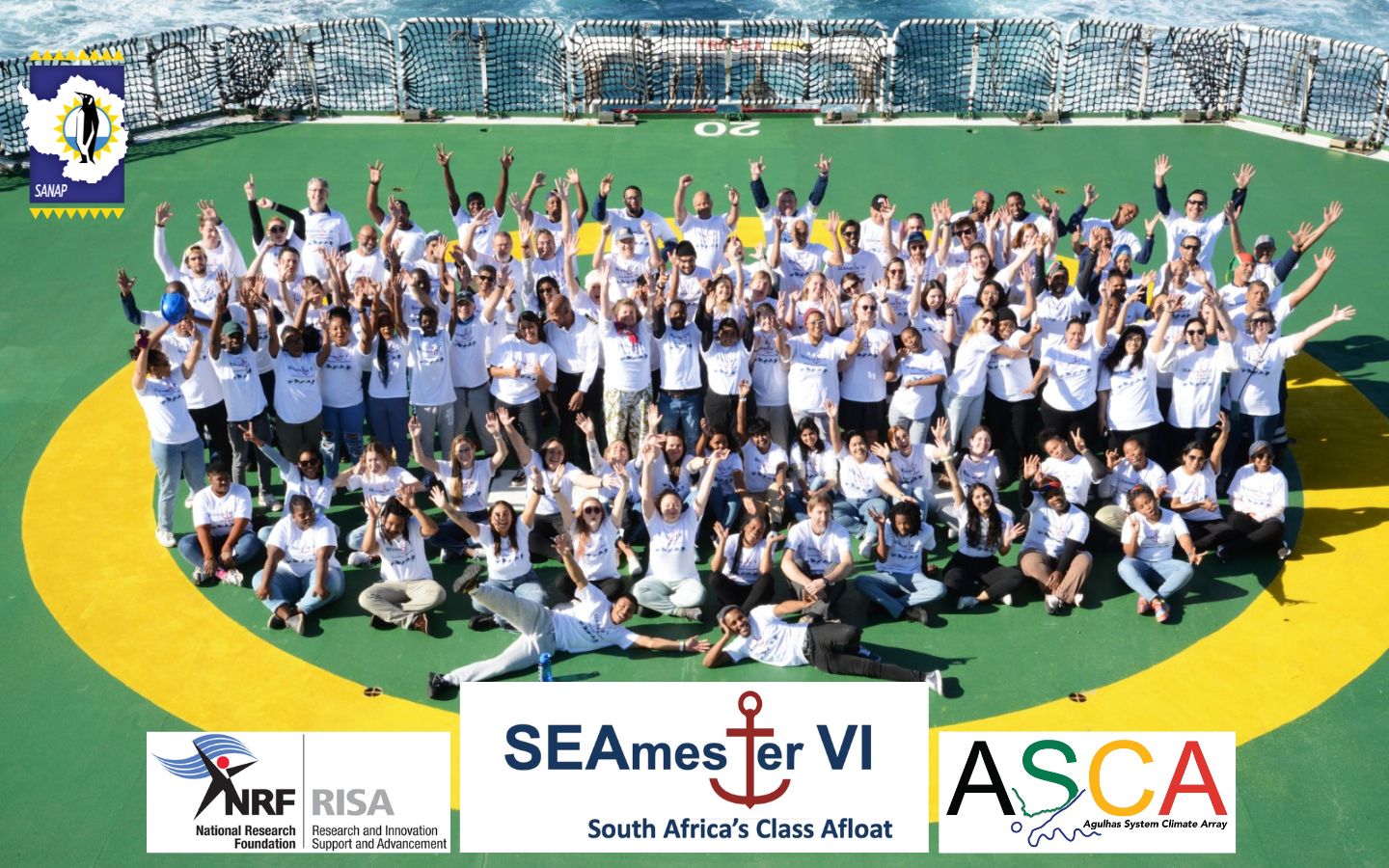
SEAmester – South Africa’s Class Afloat in association with the Agulhas System Climate Array (ASCA).
June 2023 saw the success of the 6th SEAmester expedition, a programme aimed at accelerating marine science as an applied and cross-disciplinary field to postgraduate students all over South Africa. Forty-seven science students from institutions across the country made it through the programme and participated in the SEAmester ten-day at-sea practical training course aboard the flagship South African research vessel, S.A. Agulhas II. The programme was led by Prof. Isabelle Ansorge, head of the Department for Oceanography at the University of Cape Town (UCT) and initiator of the programme; and coordinated by Tahlia Henry.
SEAmester is a programme initiated to meet the Department of Science and Innovation (DSI) objectives of creating platforms to “attract young researchers to the region and retain them by exciting their interest in aspects of global change”. SEAmester introduces marine science as an applied and cross-disciplinary field to students. The strength of SEAmester is that postgraduate students combine theoretical classroom learning with the application of this knowledge through ship-based and hands-on research.
SEAmester was undertaken in collaboration with ASCA, a science project spearheaded by DSI and the South African Environmental Observation Network (SAEON), Egagasini Node. ASCA is a multi-institutional, international collaboration, whose objectives are to determine how the Agulhas Current and its role in the global conveyor belt varies over time by providing the first long-term observations of Agulhas Current volume, heat and salt transport and its variability through seasonal to interannual timescales. To read more about ASCA click here.
Since ASCA provides a large, international programme performing ground-breaking science, and is also being used as a training platform for students, interns and junior staff, teaming SEAmester with ASCA makes an excellent match, one that has worked successfully for all SEAmester expeditions to date.
Students taking photos and soaking in the views as they bid farewell to Cape Town en route to the expedition.
Setting sail
The S.A .Agulhas II voyaged from East Pier, Cape Town on 20 June 2023 to the Agulhas Current, off East London, and docked back in Cape Town on 29 June 2023. The expedition involves running a transect across the core of the Agulhas Current off Port St Johns. The SEAmester VI expedition encompassed a group of forty-three postgraduate students from various Higher Education Institutions (HEIs) across the country (both inland and along the coast), including, two high school learners from the Northwest School, and two junior scientists from Anchor Environmental Consultants, as part of expending its network and reach.
The first two days of the voyage en route to the ASCA transect gave all on board a chance to settle in and combat their seasickness. Among the bird, mammal and weather observations along the way, the students managed to get further acquainted with life at sea.
SEAmester VI Activities
The students were divided into two module steams, “Tools of the Trade” and “Oceans in a Changing Climate”. Oceans in a Changing Climate focuses on the biological aspect of the ocean, the role of the ocean as a carbon source and carbon sink, the interconnectivity of the ocean with the atmosphere and how it affects life in the sea. Tools of the Trade focuses on various methods of measuring the physical properties of the ocean, using an assortment of instrumentation each comprising highly expensive sensors.
Learning comprised of daily class-room lectures, daily assignments and deck work – running in parallel to the ASCA programme. Students from both streams provided research support to specialist scientists and obtained daily hands-on deck training, data collection, sampling and data analysis. Each student gained experience working with the full suite of oceanographic, atmospheric and biological ship-based instrumentation such as CTD, underway measurements and autonomous devices such as Argo, SVP drifters, as well as experience on biological net tows. Training on data analysis following each dedicated SEAmester CTD station was provided, as well as technical and electronic experience in calibrating and modifying each instrument. In addition, a third stream is offered to all students which is the “Art” stream, this allows students to be creative in tasks such as tiled mosaics, photography, and documenting their cruise through journals and film-making. The students also had to work on a specific scientific mini-project related to their area of interest and the scientific research underway.
The spectrum of lectures included Introduction to Physical Oceanography, Microbiology and DNA, Benthic Environment, Oxygen and Nutrients, Molluscs, Seals and Dissections, Micro-plastics, Blue Economy, Oil spills, Maritime Archaeology, Hydrography, GIS Mapping, Film, Photography, Astronomy, Engineering, Acoustics, and Phytoplankton; presented by highly skilled lecturers and professionals from South Africa’s HEIs and organisations alike.
SEAmester VI Takeaways
The jam-packed SEAmester and ASCA operations ran smoothly with no issues to report for the entire expedition. The students were dedicated and rose to the challenge and completed their projects timeously. The programme came to an end on the morning of the 29th of June after the students showcased their SEAmester movies about their journey and received their completion of the programme certificates. The students were then treated to a cake by the SA Agulhas II crew. An art exhibition and farewell gathering was held the night before, where students reflected on their journey and the expedition, expressing that SEAmester has been rewarding both educationally and in terms of the network and connections they made. A social braai and themed party were held on one of the last nights, during this time, all the students and staff came together to unwind after all the tasks had been submitted.
With that said, the biggest success of SEAmester remains to be its ability to break down social, cultural, economical, and racial barriers between students and in doing so build the next generation of integrated marine scientists in South Africa.
SEAmester-South Africa’s Floating University is a NRF-SANAP funded project. Click on the link below to view all the current NRF-SANAP funded projects.
NRF-SANAP funded projects
Featured Image credit: Associate Professor Svea Josephy, Fine Art (photography) at the Michaelis School of Fine Art, University of Cape Town.
Images: Rabia Mathakutha, South African Polar Research Infrastructure; Megan Maroen, Stellenbosch University.
Rabia Mathakutha, South African Polar Research Infrastructure, 26 July 2023.
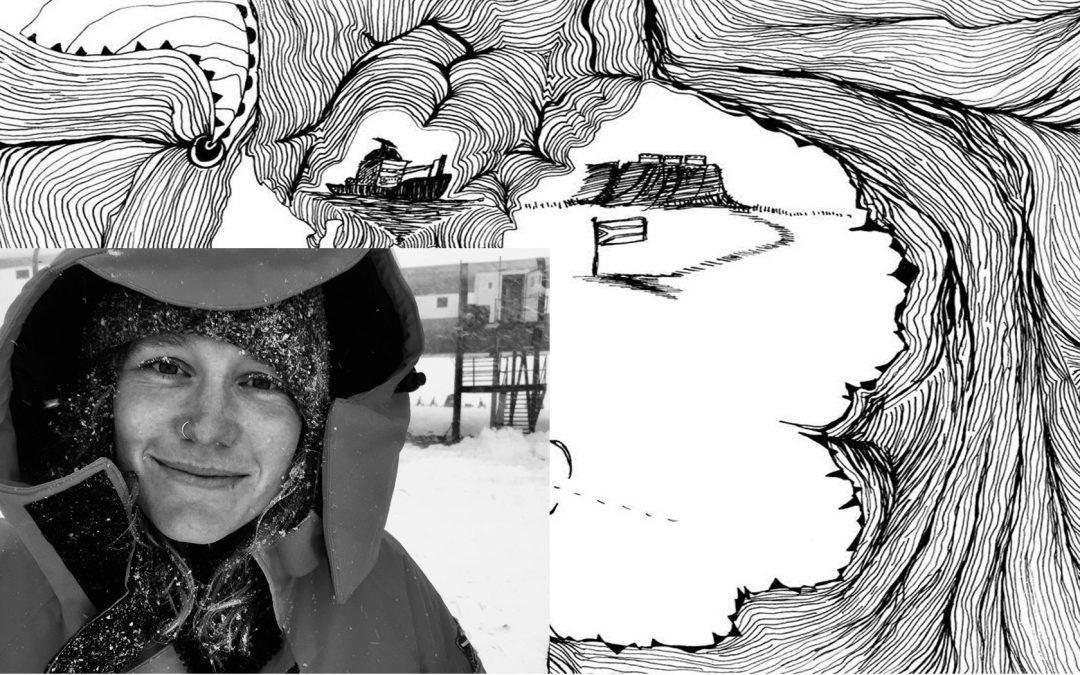
by Ria Olivier | Aug 12, 2022 | Announcement, Research, SA Polar Infratsructure, SA Polar Research Infrastructure, SANAP, SAPolarRI
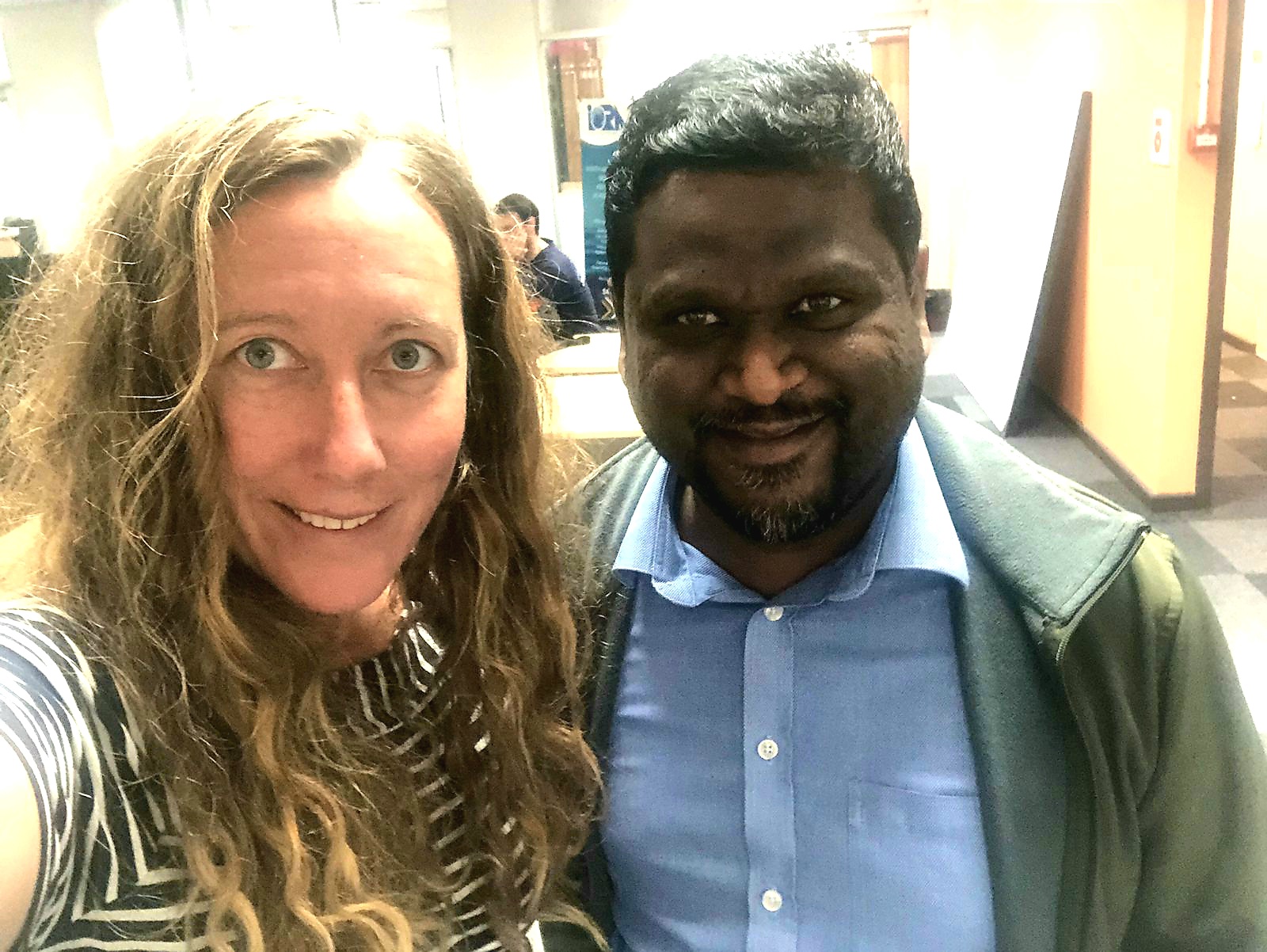
Nishendra (Nish) Devanunthan (right) has been appointed as the Operations Coordinator for the South African Polar Research Infrastructure (SAPRI) of the Logistics Node. He will work directly with Dr Juliet Hermies (left), the acting director of SAPRI.
 The operations coordinator will be based at SAEON Egagasini Node, in Cape Town, and will be responsible for the day-to-day operational and logistical management of SAPRI. The main responsibilities will be to support effective communication and coordination between SAPRI stakeholders, coordinate Supply Chain Management activities at SAPRI to meet organizational objectives, and support the promotion of transformation within polar science. Nish Devanunthan brings to SAPRI a wealth of knowledge in engineering, logistics, operations, and project management. His understanding of navigating the public administration landscape, public procurement, stakeholder engagement, planning and execution of logistics are very relevant to his appointment as operations coordinator.
The operations coordinator will be based at SAEON Egagasini Node, in Cape Town, and will be responsible for the day-to-day operational and logistical management of SAPRI. The main responsibilities will be to support effective communication and coordination between SAPRI stakeholders, coordinate Supply Chain Management activities at SAPRI to meet organizational objectives, and support the promotion of transformation within polar science. Nish Devanunthan brings to SAPRI a wealth of knowledge in engineering, logistics, operations, and project management. His understanding of navigating the public administration landscape, public procurement, stakeholder engagement, planning and execution of logistics are very relevant to his appointment as operations coordinator.
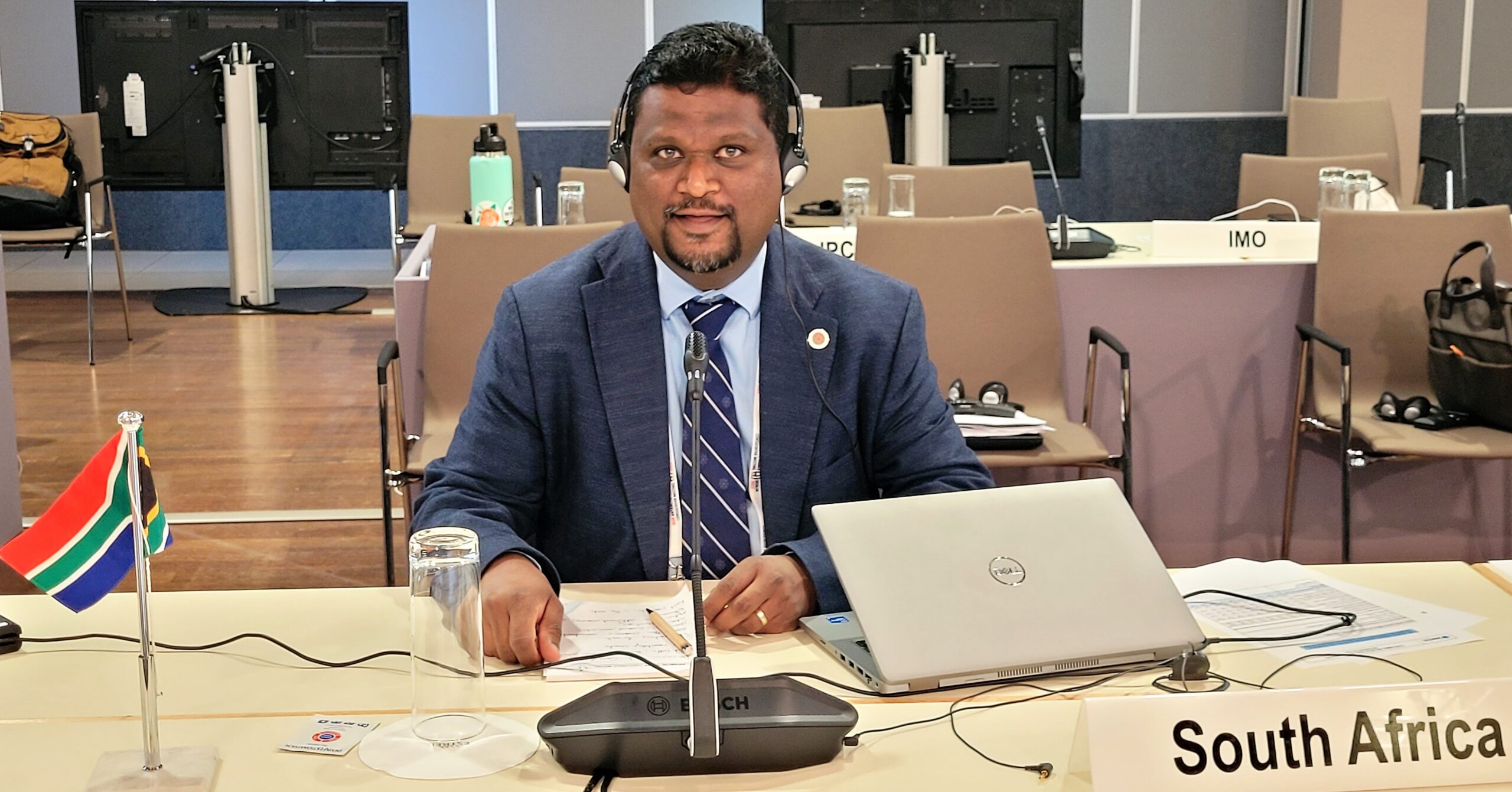 Nish hails from a small town in KwaZulu-Natal on the North Coast and completed his MBA in 2017. His previous appointment was the Director of Southern Oceans & Antarctic Support in the Department of Forestry, Fisheries and the Environment (DFFE): Oceans & Coasts since 2013. His activities and responsibilities as director at DFFE, such as planning, forecasting, and overseeing execution of projects as well as financial and contract management will be very relevant to his appointment as operations coordinator. Read more.
Nish hails from a small town in KwaZulu-Natal on the North Coast and completed his MBA in 2017. His previous appointment was the Director of Southern Oceans & Antarctic Support in the Department of Forestry, Fisheries and the Environment (DFFE): Oceans & Coasts since 2013. His activities and responsibilities as director at DFFE, such as planning, forecasting, and overseeing execution of projects as well as financial and contract management will be very relevant to his appointment as operations coordinator. Read more.
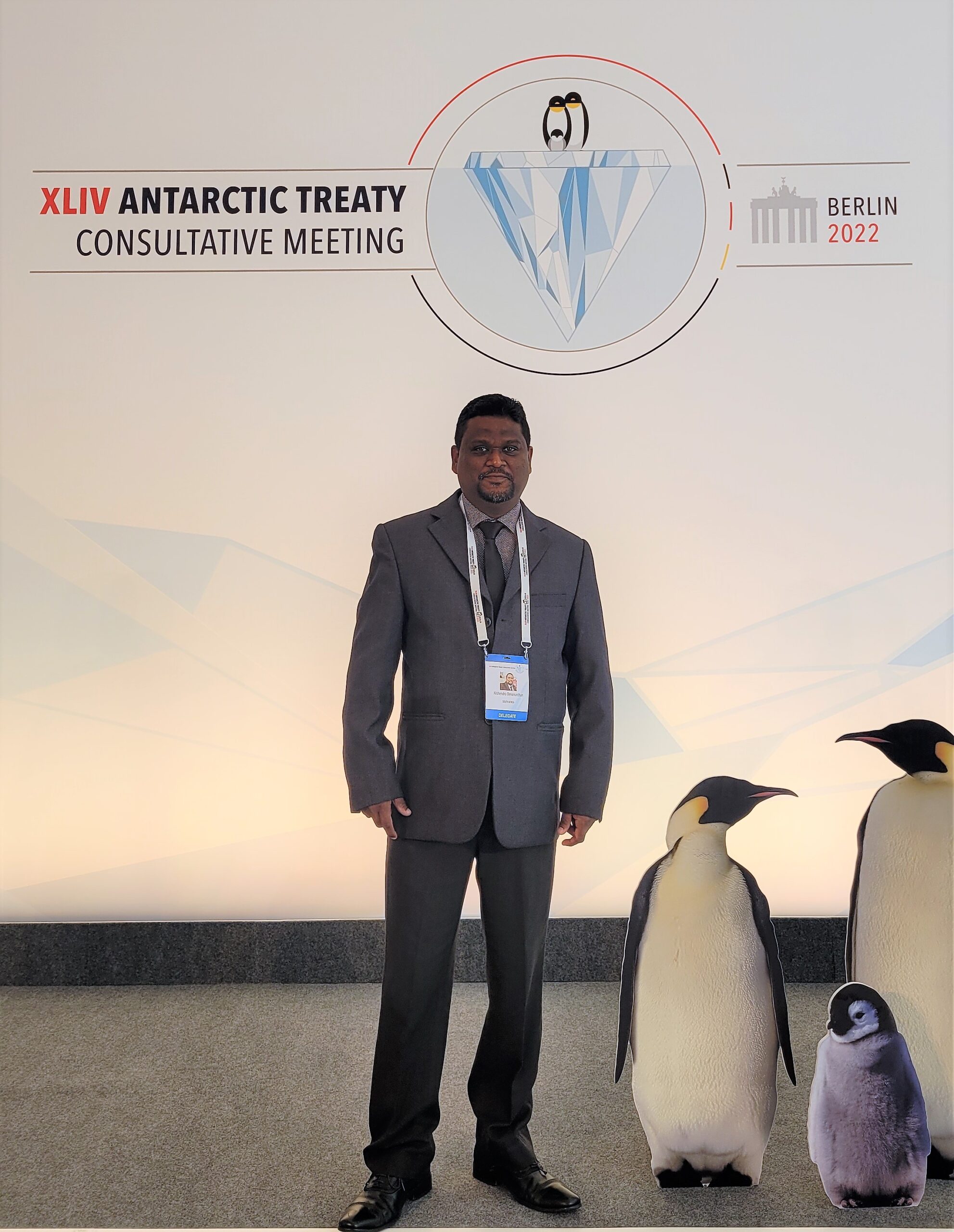
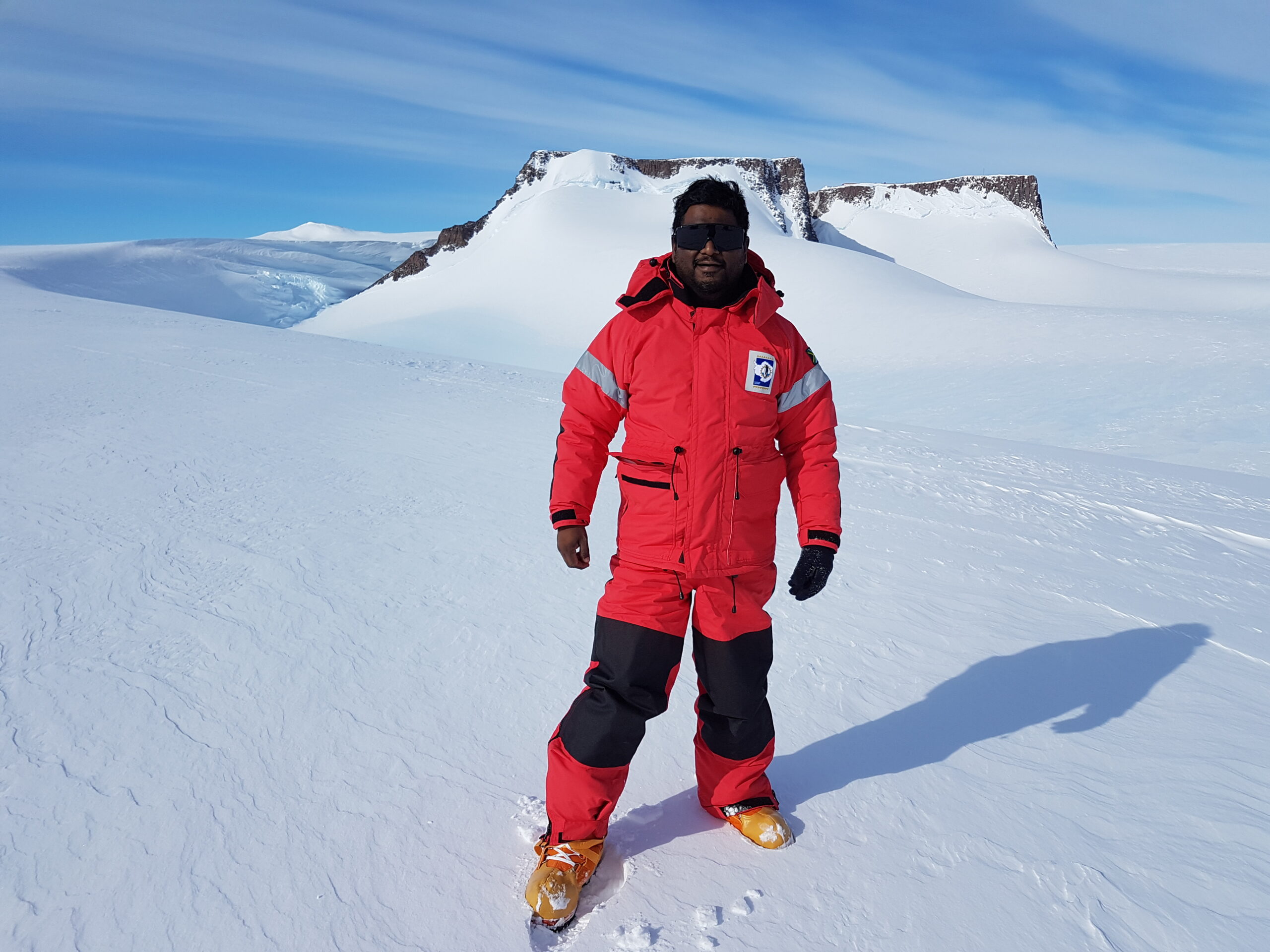 He has been to SANAE IV, Marion Island, and Gough Island and was South Africa’s representative at the Council for Managers of National Antarctic Programs (COMNAP), and has attended the past Antarctic Treaty consultative meeting (ATCM).
He has been to SANAE IV, Marion Island, and Gough Island and was South Africa’s representative at the Council for Managers of National Antarctic Programs (COMNAP), and has attended the past Antarctic Treaty consultative meeting (ATCM).
Read more about Nish Devanunthan in the mid-month series on the SANAP website.
Cover photo: Andrew McDonnell
Ria Olivier, Antarctic Legacy of South Africa, 12 August 2022.
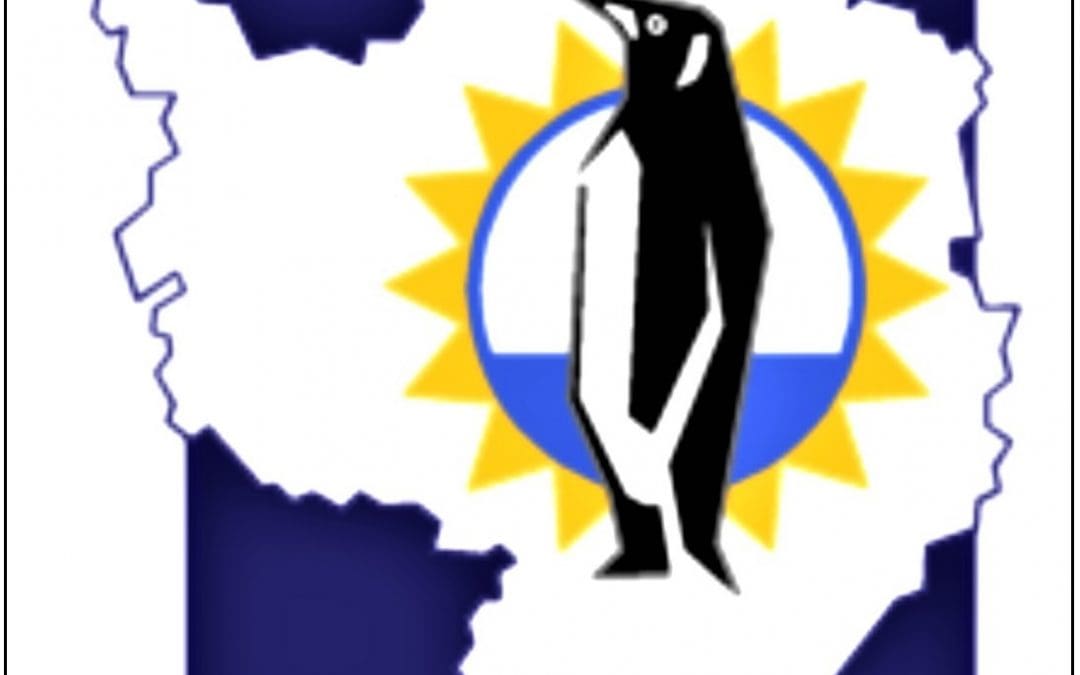
by Ria Olivier | Sep 30, 2021 | Antarctica, Data Management, Gough Island, Marion Island, Not-Assigned, Prince Edward Islands, Research, SA Agulhas II, SA Polar Infratsructure, SANAP, Science, Southern Ocean
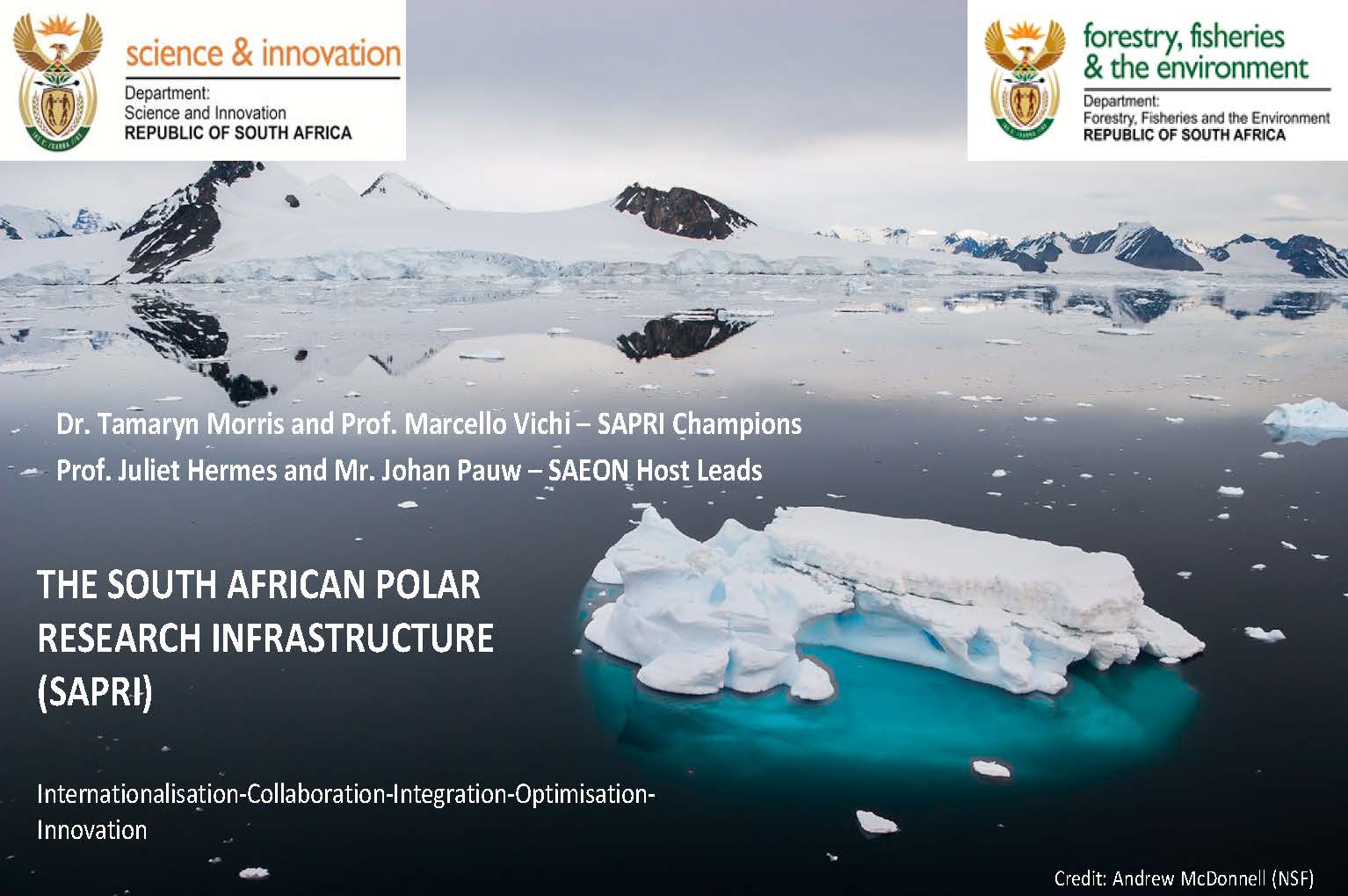 South African Polar Research Infrastructure (SAPRI): Launch of the Preparatory Phase
South African Polar Research Infrastructure (SAPRI): Launch of the Preparatory Phase

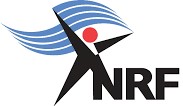 The SAPRI team is pleased to inform you that the contractual agreement for the starting of the SAPRI implementation phase is being finalized between the Department of Science and Innovation (DSI) and National Research Foundation of South Africa (NRF). We have now entered the Preparatory Phase of SAPRI’s operationalisation and interim measures are being put in place to ensure progress is made. Until the formal signature of the contract, the SAPRI cannot officially initiate Phase 1, but in the interim the Preparatory Phase will continue the conceptual design of the RI and predispose priority actions with the support of the community.
The SAPRI team is pleased to inform you that the contractual agreement for the starting of the SAPRI implementation phase is being finalized between the Department of Science and Innovation (DSI) and National Research Foundation of South Africa (NRF). We have now entered the Preparatory Phase of SAPRI’s operationalisation and interim measures are being put in place to ensure progress is made. Until the formal signature of the contract, the SAPRI cannot officially initiate Phase 1, but in the interim the Preparatory Phase will continue the conceptual design of the RI and predispose priority actions with the support of the community.

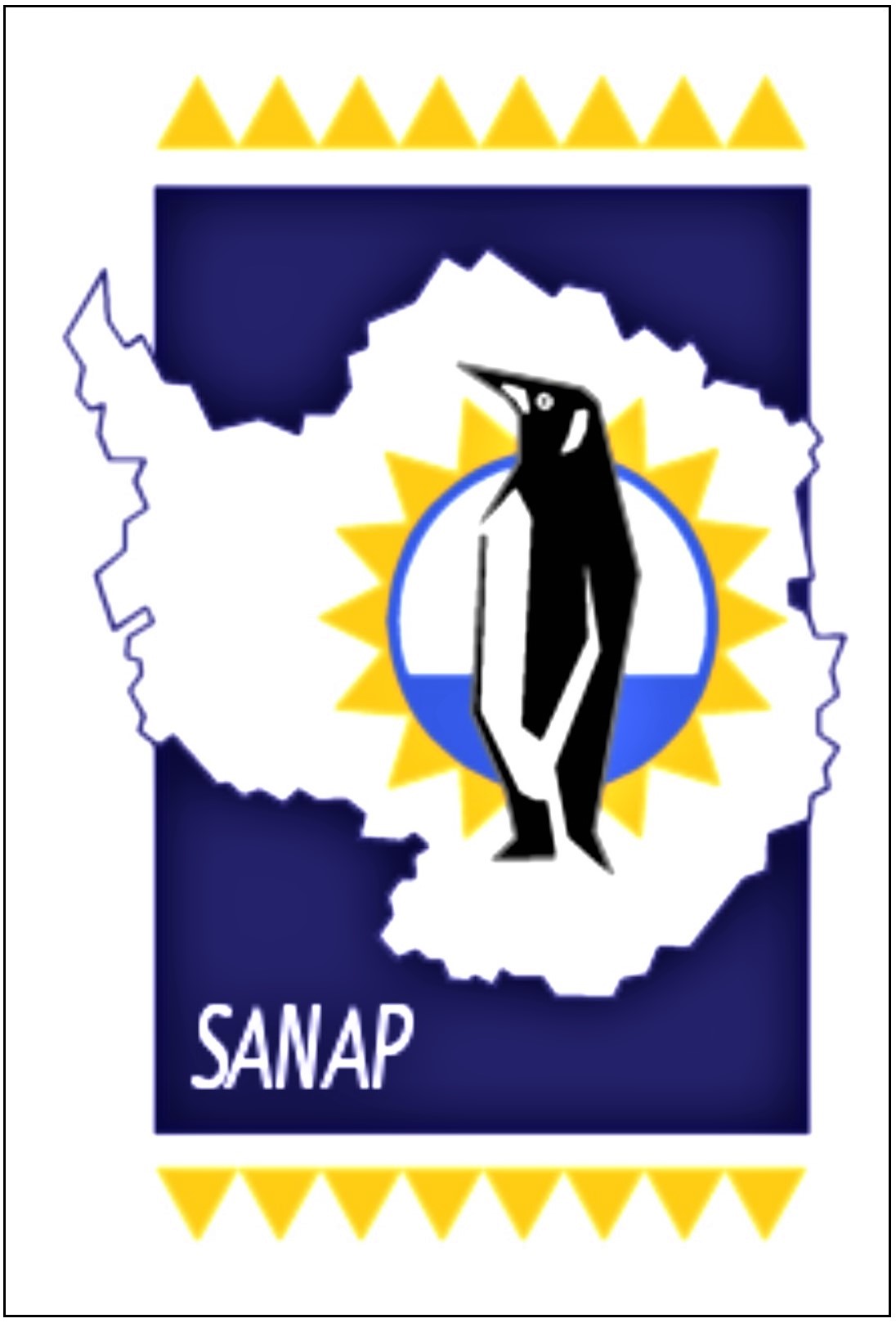 These achievements would not have been possible without the trust demonstrated by the scientific SANAP community towards the SAPRI team, the contribution and constructive support of the DFFE Oceans & Coasts Branch managing the SANAP logistics, and the commitment to collaborate offered by other institutions that have historically been involved in polar research. This gestation and birth of SAPRI is a major advancement to streamline, consolidate and grow the South African polar sciences, and represent a systemic innovation to maximize the investments of the various governmental institutions involved. The SAPRI will officially start from the advantageous position of being incubated within South African Environmental Observation Network (SAEON), which will fast-track the establishment of the governance and of the consortium agreements.
These achievements would not have been possible without the trust demonstrated by the scientific SANAP community towards the SAPRI team, the contribution and constructive support of the DFFE Oceans & Coasts Branch managing the SANAP logistics, and the commitment to collaborate offered by other institutions that have historically been involved in polar research. This gestation and birth of SAPRI is a major advancement to streamline, consolidate and grow the South African polar sciences, and represent a systemic innovation to maximize the investments of the various governmental institutions involved. The SAPRI will officially start from the advantageous position of being incubated within South African Environmental Observation Network (SAEON), which will fast-track the establishment of the governance and of the consortium agreements.
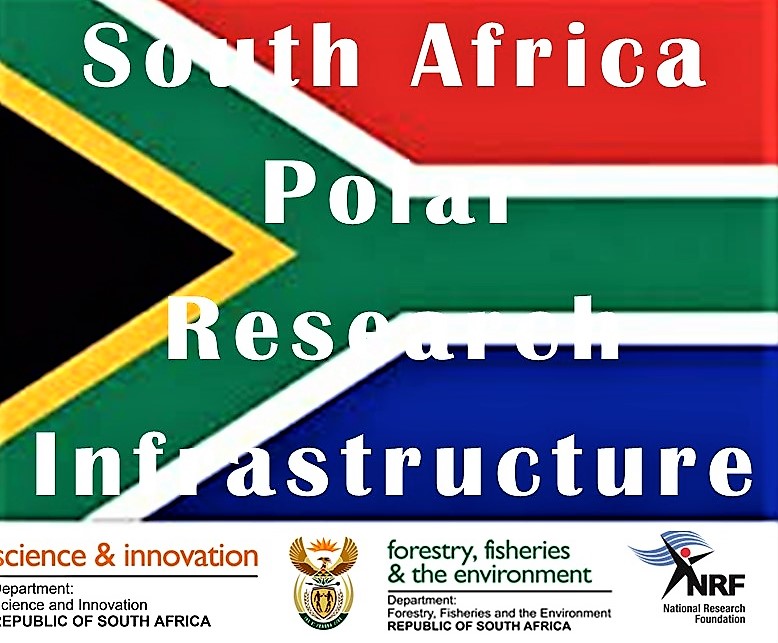 The launch of the SAPRI Preparatory Phase was announced via a webinar and a Q&A session to illustrate the main aspects of SAPRI, its organization into integrated facilities, and the first steps of the implementation phase listed in the business plan. To accelerate the implementation phase, it is proposed to initiate an informal Preparatory Phase of SAPRI and to discuss the following actions with the community of stakeholders:
The launch of the SAPRI Preparatory Phase was announced via a webinar and a Q&A session to illustrate the main aspects of SAPRI, its organization into integrated facilities, and the first steps of the implementation phase listed in the business plan. To accelerate the implementation phase, it is proposed to initiate an informal Preparatory Phase of SAPRI and to discuss the following actions with the community of stakeholders:
- Establishment of the User Fora overseeing the requirements of the integrated facilities.
- Implementation of the Task Team for the reorganization of SANAP within the NRF.
- Consultation and discussion on the implementation steps for the Polar Science Transformation Plan.
- Establishment of the DFFE-SAPRI Task Team for assisting with science-related logistics. This will include discussions around the SA Agulhas II dry dock scheduled for November 2021.
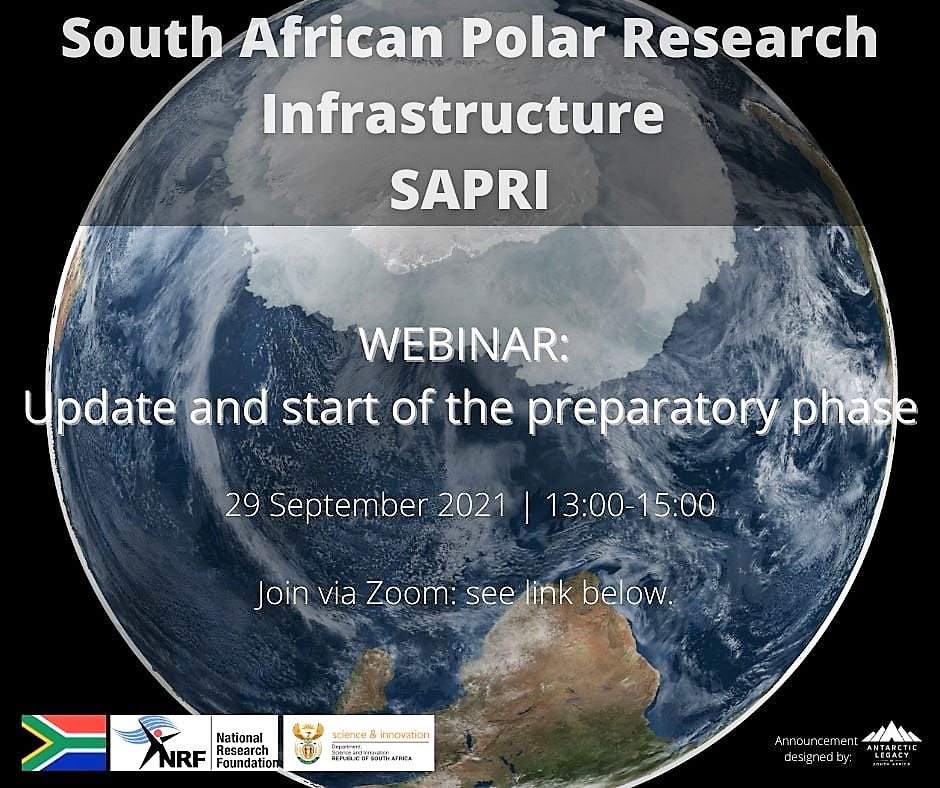 The virtual webinar took place on 29th September 13:00-15:00 and was led by the SAPRI team; Tamaryn Morris, Marcello Vichi, Juliet Hermes, Johannes Pauw.
The virtual webinar took place on 29th September 13:00-15:00 and was led by the SAPRI team; Tamaryn Morris, Marcello Vichi, Juliet Hermes, Johannes Pauw.
- Overview of SAPRI
- Current status, Business Plan priorities, budget requirements and transformation actions
- Q&A
- Preparatory phase
The following links are available to the Antarctic Legacy of South Africa Archive of the webinar recordings and presentations of the South African Polar Research Infrastructure (SAPRI): launch of the Preparatory Phase:
IMPORTANT documents related to and to be read together with SAPRI proposal available on ALSA archive:

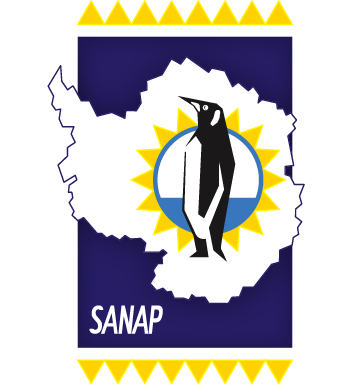





 The
The  Nish hails from a small town in KwaZulu-Natal on the North Coast and completed his MBA in 2017. His previous appointment was the
Nish hails from a small town in KwaZulu-Natal on the North Coast and completed his MBA in 2017. His previous appointment was the 
 He has been to SANAE IV, Marion Island, and Gough Island and was South Africa’s representative at the
He has been to SANAE IV, Marion Island, and Gough Island and was South Africa’s representative at the 
 South African Polar Research Infrastructure (SAPRI): Launch of the Preparatory Phase
South African Polar Research Infrastructure (SAPRI): Launch of the Preparatory Phase
 The SAPRI team is pleased to inform you that the contractual agreement for the starting of the SAPRI implementation phase is being finalized between the
The SAPRI team is pleased to inform you that the contractual agreement for the starting of the SAPRI implementation phase is being finalized between the 
 These achievements would not have been possible without the trust demonstrated by the scientific
These achievements would not have been possible without the trust demonstrated by the scientific  The launch of the SAPRI Preparatory Phase was announced via a webinar and a Q&A session to illustrate the main aspects of SAPRI, its organization into integrated facilities, and the first steps of the implementation phase listed in the business plan. To accelerate the implementation phase, it is proposed to initiate an informal Preparatory Phase of SAPRI and to discuss the following actions with the community of stakeholders:
The launch of the SAPRI Preparatory Phase was announced via a webinar and a Q&A session to illustrate the main aspects of SAPRI, its organization into integrated facilities, and the first steps of the implementation phase listed in the business plan. To accelerate the implementation phase, it is proposed to initiate an informal Preparatory Phase of SAPRI and to discuss the following actions with the community of stakeholders: The virtual webinar took place on 29th September 13:00-15:00 and was led by the SAPRI team; Tamaryn Morris, Marcello Vichi, Juliet Hermes, Johannes Pauw.
The virtual webinar took place on 29th September 13:00-15:00 and was led by the SAPRI team; Tamaryn Morris, Marcello Vichi, Juliet Hermes, Johannes Pauw.
